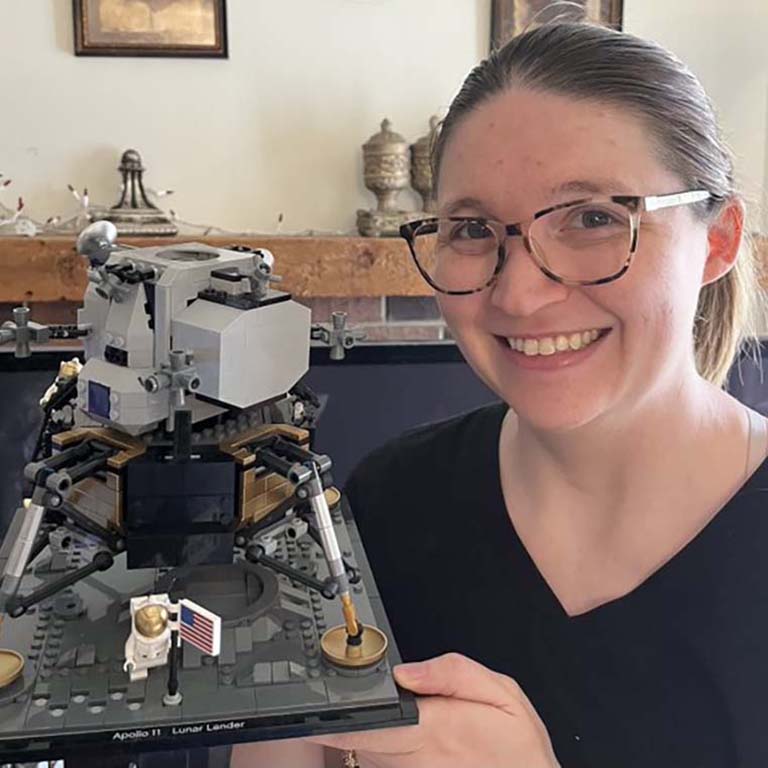INSGC funds graduate student’s quest to further NASA's mission in space.
The Indiana Space Grant Consortium has granted a $12,000 fellowship for the 2022/23 academic year to Brittany Herrin, a fifth-year Ph.D. student in the Microbiology Graduate Program at IU Bloomington.
“Even before attending graduate school,” Herrin said, “I had hoped to apply my studies to astrobiology. This fellowship gives me my first opportunity to do this. I am extremely grateful and excited to do this work to further NASA’s mission in space.”
The fellowship will fund Herrin and her undergraduate assistant Ceilidh Christie, a biology major in the department, as they investigate maximizing hydrogen (H2) production by a microbial community as a means of producing biofuel on Mars. The transport of fuel to Mars from Earth would be costly, so it is critical to find a way to produce fuel on the red planet.
Photobiological production of H2 is a promising option for electricity generation on Mars. A group of bacteria, the purple non-sulfur bacteria (PNSB), can produce H2 under anoxygenic conditions, which is ideal for the Martian atmosphere, but the H2 yield from these organisms is low. Herrin is working to modify an existing synthetic bacterial mutualism of a fermentative bacterium and a PNSB to maximize the amount of H2 produced when grown under conditions that resemble those on Mars. This synthetic mutualism produces H2 from both organisms, but the work she proposes will modify the fermentative bacterium to produce more H2 from waste carbon than normally accumulates in the mutualism.
Maximizing the H2 production of this culture is the critical first step to optimize sustainable H2 generation on Mars. Herrin’s project could ultimately convert waste to generate enough contained H2 on Mars to use as an energy source of electricity which, in turn, would power living and working spaces.
Herrin is in Associate Professor Jake McKinlay’s lab. She is interested in bacterial metabolism, both in a single organism as well as a community of microorganisms. She is also interested in how we can leverage or engineer metabolic interactions and bacteria to generate useful products, like biofuels.
Upon her anticipated graduation in spring 2024, Herrin plans to apply to traditional postdoctoral fellowships, but she will also pursue postdoctoral fellowships funded by NASA as she continues her reach for the stars.
The INSGC is part of a national program inspired by the mission and work of NASA. The program’s purpose is to enhance the United States' capabilities to carry out education, research, and public outreach activities in STEM and additional fields related to space, aeronautics, life science, physical science, and earth system science.

 The College of Arts
The College of Arts